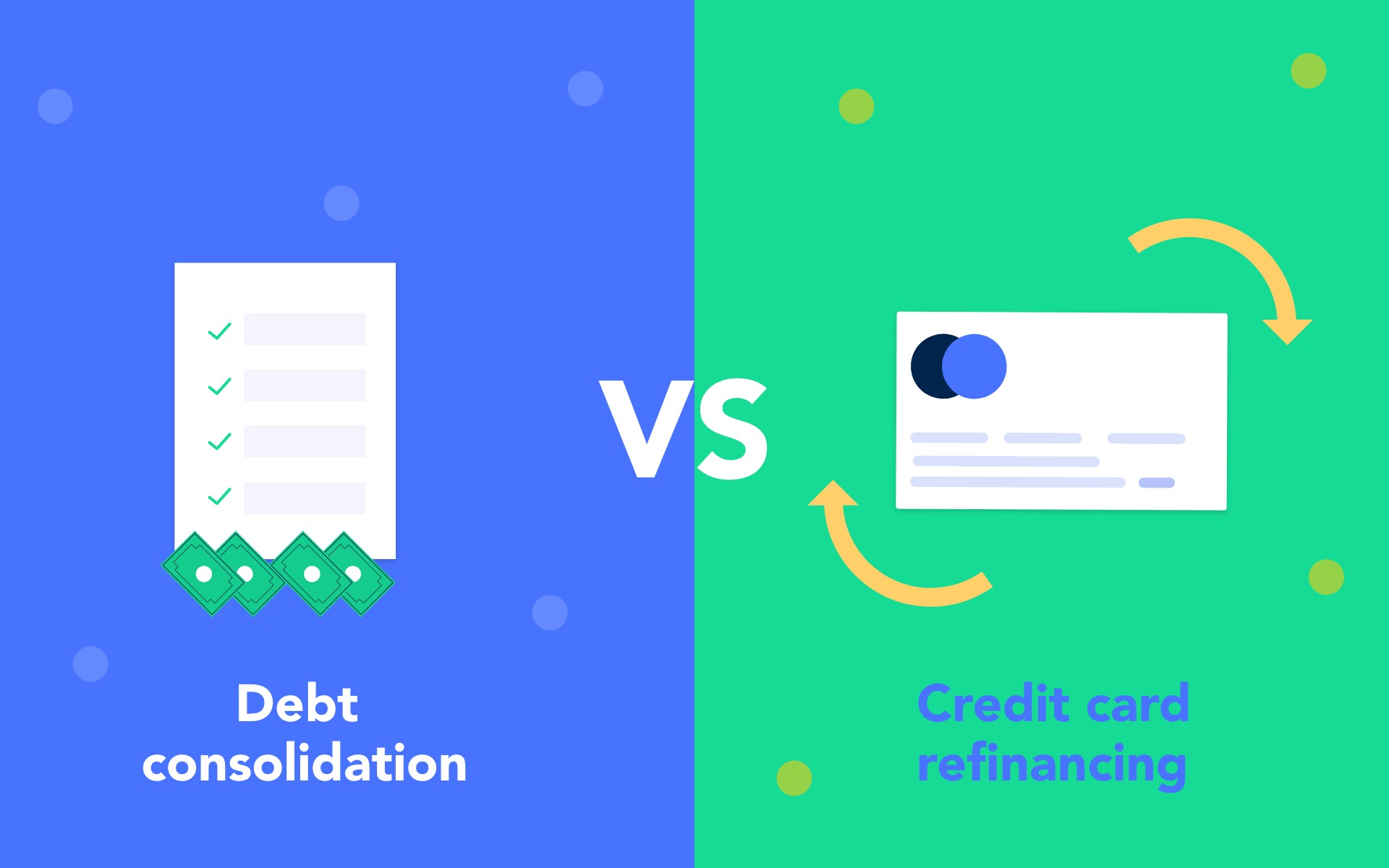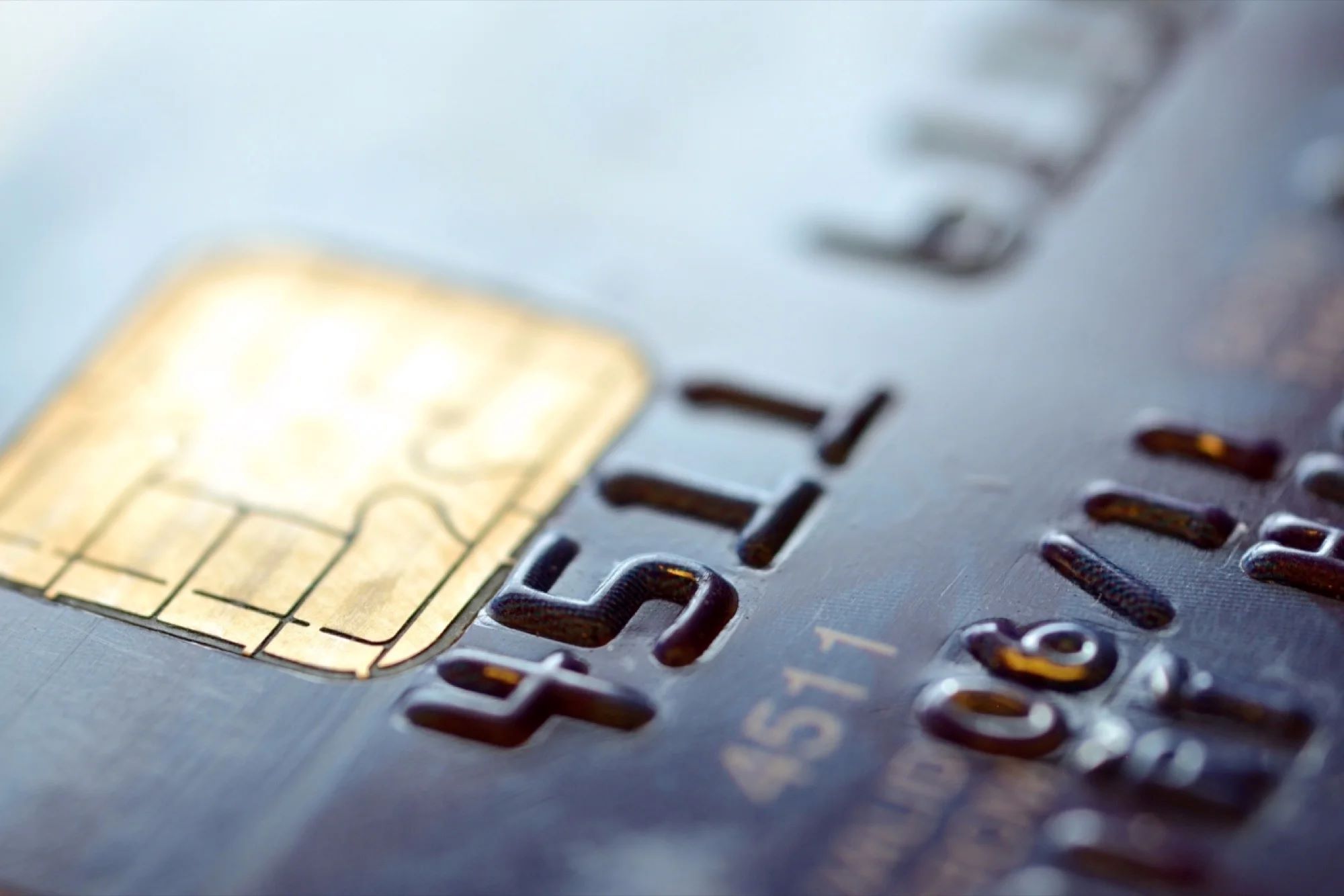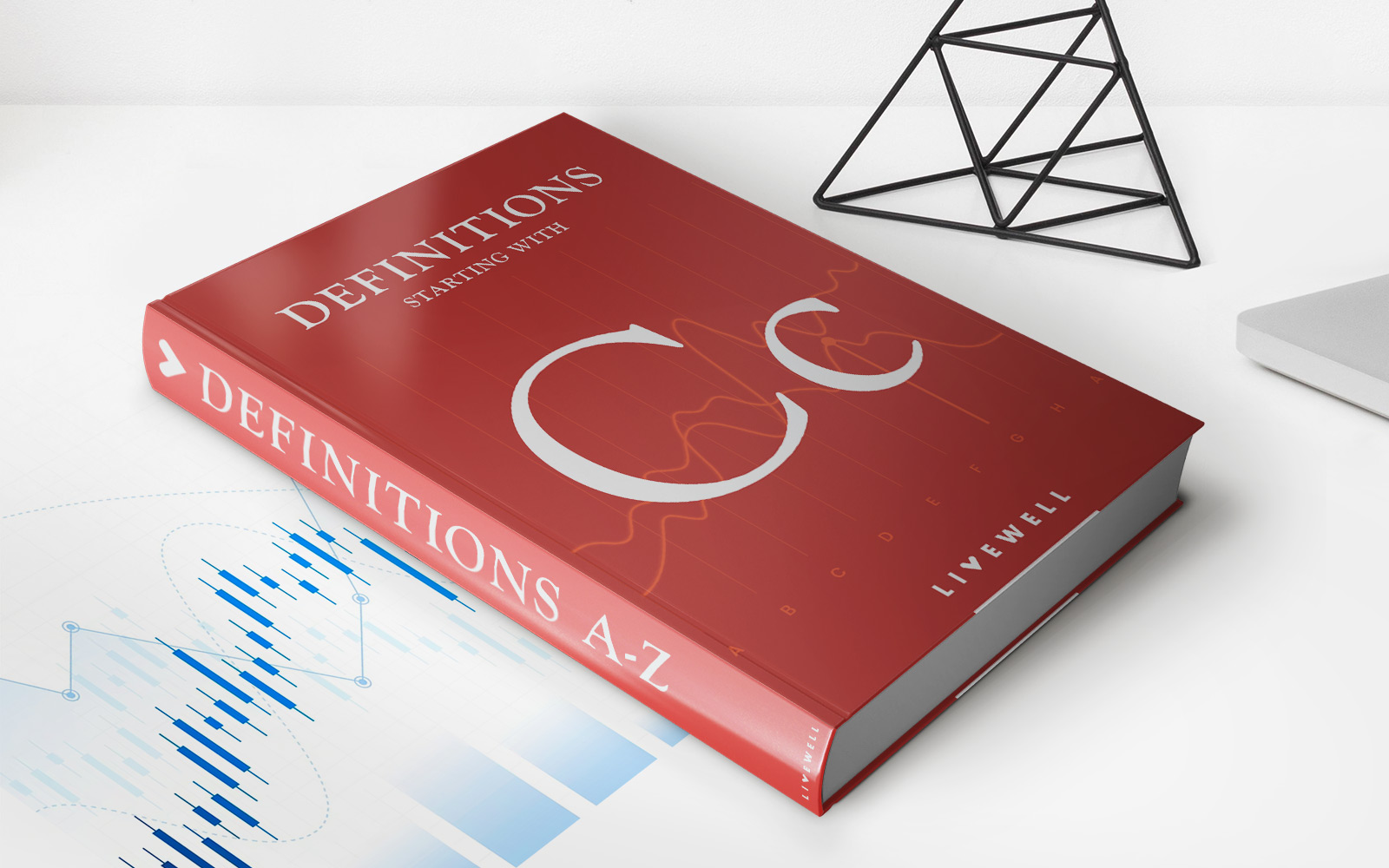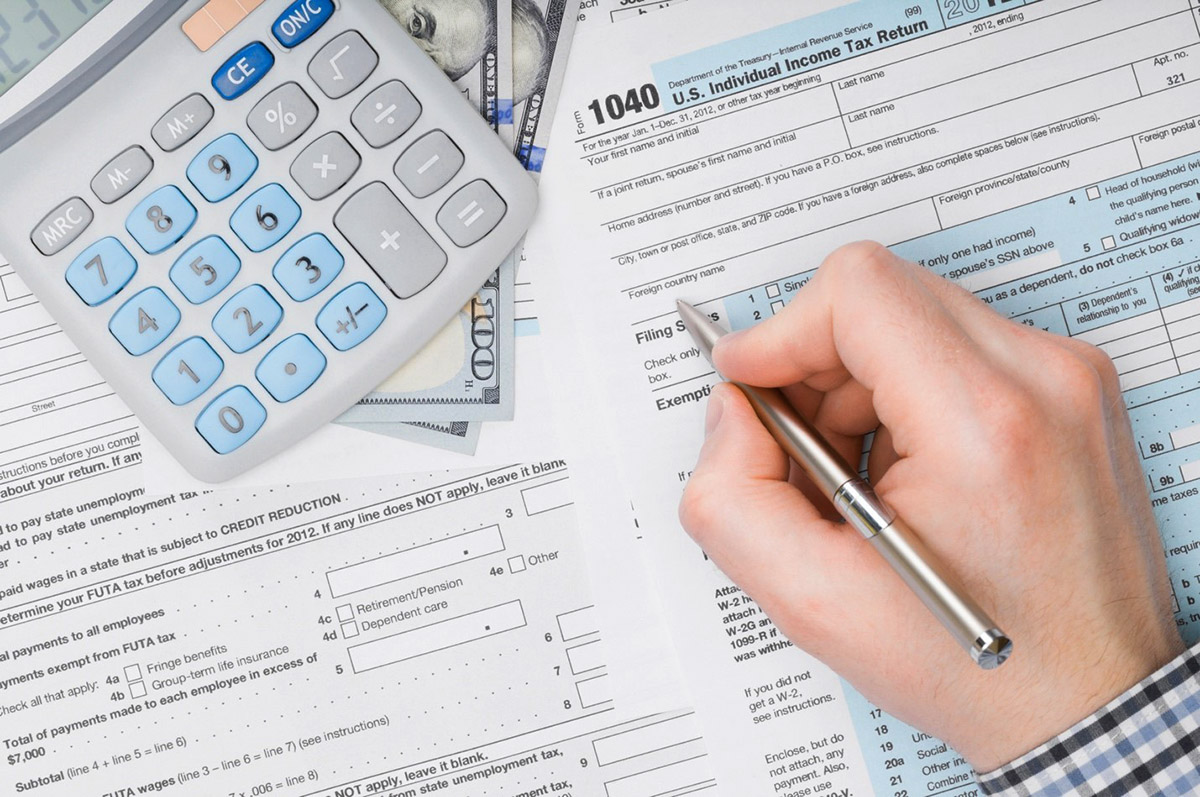

Finance
What Is Credit Card Debt Forgiveness
Modified: December 29, 2023
Learn about credit card debt forgiveness and how it can help improve your finances. Find out the benefits and process of seeking debt relief.
(Many of the links in this article redirect to a specific reviewed product. Your purchase of these products through affiliate links helps to generate commission for LiveWell, at no extra cost. Learn more)
Table of Contents
- Introduction
- Understanding Credit Card Debt Forgiveness
- The Process of Credit Card Debt Forgiveness
- Eligibility Criteria for Credit Card Debt Forgiveness
- Pros and Cons of Credit Card Debt Forgiveness
- Alternatives to Credit Card Debt Forgiveness
- How to Apply for Credit Card Debt Forgiveness
- Impact of Credit Card Debt Forgiveness on Credit Score
- Frequently Asked Questions about Credit Card Debt Forgiveness
- Conclusion
Introduction
Credit card debt can be a significant burden for many individuals and families. It can accumulate quickly, making it challenging to keep up with monthly payments and ultimately impacting one’s financial well-being. In such situations, credit card debt forgiveness can provide a ray of hope.
Credit card debt forgiveness, also known as debt settlement or debt relief, is a process in which creditors agree to accept less than the full amount owed in order to settle the debt. It offers individuals an opportunity to reduce their overall debt burden and work towards a fresh financial start. However, it is essential to understand the process, eligibility criteria, and potential impacts before considering credit card debt forgiveness.
In this article, we will delve into the details of credit card debt forgiveness, including how it works, who may be eligible, and its pros and cons. We will also explore alternative options for debt relief and provide guidance on how to apply for credit card debt forgiveness.
It is crucial to note that credit card debt forgiveness is not a one-size-fits-all solution. What works for one person may not be suitable for another, and it’s important to carefully consider your individual circumstances and financial goals. By gaining a comprehensive understanding of credit card debt forgiveness, you can make a more informed decision regarding your financial future.
So, if you find yourself struggling with overwhelming credit card debt, join us on this exploration to learn more about credit card debt forgiveness and how it may offer you relief from your financial burdens.
Understanding Credit Card Debt Forgiveness
Credit card debt forgiveness is a debt relief option that allows individuals who are struggling with credit card debt to negotiate with their creditors to settle the debt for less than the full amount owed. It is important to understand the key elements of credit card debt forgiveness in order to make an informed decision about whether it is the right option for you.
Firstly, credit card debt forgiveness typically involves working with a debt relief company or negotiating directly with your creditors. These professionals have experience in dealing with creditors and can help you navigate the negotiation process. They will assess your financial situation, including your income, expenses, and the amount of debt you owe, to determine the best strategy for debt settlement.
Once you have decided to pursue credit card debt forgiveness, the negotiation process begins. The debt relief company or you, as the borrower, will reach out to your creditors to explain your financial hardship and propose a reduced settlement amount. It is important to provide honest and accurate information about your financial situation to increase your chances of a successful negotiation.
During the negotiation process, creditors may agree to settle the debt for a percentage of the total amount owed. This percentage can vary depending on factors such as the age of the debt, the borrower’s financial hardship, and the creditor’s willingness to negotiate. It is crucial to review and understand the terms of the settlement agreement before accepting it.
It is important to note that credit card debt forgiveness may not eliminate all of your debt. You may still be responsible for certain fees, interest, or taxes associated with the settled amount. It is important to carefully review the terms of the settlement agreement and consult with a financial professional if you have any doubts or questions.
Furthermore, credit card debt forgiveness can have both positive and negative consequences. On one hand, it can provide immediate relief from overwhelming debt and allow you to focus on rebuilding your financial stability. On the other hand, it can have a negative impact on your credit score and may be reported on your credit report for several years.
In the next section, we will explore the eligibility criteria for credit card debt forgiveness, so you can determine if you qualify for this debt relief option.
The Process of Credit Card Debt Forgiveness
The process of credit card debt forgiveness involves several key steps that are important to understand before pursuing this debt relief option. While the specific details may vary depending on the debt relief company or individual negotiation, below is a general outline of the process.
1. Financial Assessment: The first step in the process is to assess your financial situation. This includes gathering information about your income, expenses, and the amount of debt you owe. It is important to have a clear understanding of your financial standing to determine if debt forgiveness is the right option for you.
2. Consultation with a Debt Relief Professional: Once you have assessed your financial situation, it is advisable to consult with a debt relief professional. These professionals have experience in negotiating with creditors and can provide guidance on the best approach to pursue debt forgiveness. They will review your financial information, discuss your goals and options, and help you develop a strategy for negotiation.
3. Communication with Creditors: The next step is to contact your creditors or work through the debt relief company to communicate with them. You will explain your financial hardship and propose a settlement offer. Creditors may be more willing to negotiate if they believe that collecting a portion of the debt is more advantageous for them than receiving nothing at all.
4. Negotiation Process: Once you have initiated communication with your creditors, the negotiation process begins. This can involve multiple rounds of back-and-forth discussions to reach a settlement agreement. It is important to remain patient, persistent, and committed to finding a mutually agreeable solution.
5. Settlement Agreement: If successful, you will reach a settlement agreement with your creditors. This agreement will outline the terms of the settlement, including the reduced amount to be paid, the method of payment, and any additional conditions or requirements. It is crucial to carefully review the settlement agreement before accepting it, and if necessary, seek professional advice to ensure its fairness and legality.
6. Payment of Settlement: Once the settlement agreement is finalized, you will be required to make the agreed-upon payment to your creditors. This can be a lump sum payment or structured payments over a specified period of time. It is important to honor the payment schedule to fulfill your obligations under the settlement agreement.
7. Documentation and Follow-up: After making the settlement payment, it is important to keep a record of all documents related to the debt forgiveness process. This includes the settlement agreement, payment receipts, and any correspondence with creditors. It may also be advisable to follow up with the creditors to ensure that they report the debt settlement accurately to the credit bureaus.
It is important to note that the process of credit card debt forgiveness can be complex and time-consuming. Working with a reputable debt relief company or seeking professional advice can help navigate through the process more smoothly and increase the chances of a successful settlement.
Next, we will discuss the eligibility criteria for credit card debt forgiveness, so you can determine if you qualify for this debt relief option.
Eligibility Criteria for Credit Card Debt Forgiveness
While credit card debt forgiveness can help individuals struggling with overwhelming debt, not everyone is eligible for this debt relief option. Creditors typically consider certain factors when deciding whether to accept a settlement offer. Understanding the eligibility criteria will help you determine if you qualify for credit card debt forgiveness.
1. Financial Hardship: To be eligible for credit card debt forgiveness, you need to demonstrate that you are experiencing a genuine financial hardship that prevents you from paying off your debt in full. This can include situations such as job loss, medical emergencies, or significant income reduction. Having a verifiable and documented financial hardship will increase your chances of being considered for debt forgiveness.
2. Delinquency or Default: Creditors are more inclined to negotiate a settlement when they perceive a risk of non-payment. Being delinquent on your credit card payments or having defaulted on your debt can make you eligible for debt forgiveness. Creditors may see it as an opportunity to recover at least a portion of the outstanding debt rather than writing off the entire amount.
3. Large Outstanding Debt: Credit card debt forgiveness is more commonly offered to individuals with high amounts of outstanding debt. Creditors may be more willing to negotiate a settlement if the total amount owed is substantial, as they want to recoup some of the money owed to them. However, there is no set threshold for the debt amount, as eligibility depends on various factors.
4. Ability to Make a Reasonable Settlement Offer: Creditors will consider your ability to make a reasonable settlement offer. They assess your income, assets, and financial resources to determine the amount you can realistically pay. It is important to have a clear understanding of your financial situation and be prepared to make a settlement offer that is acceptable to both you and your creditor.
5. Financial Stability and Future Payment Potential: Creditors may also evaluate your overall financial stability and future payment potential. They want to ensure that you are genuinely unable to pay off your debt and that debt forgiveness is the best option for both parties. Demonstrating financial instability and a lack of future payment potential can increase your eligibility for debt forgiveness.
It is important to note that meeting the eligibility criteria does not guarantee that your creditors will accept a settlement offer. Each case is unique, and creditors have the discretion to accept or reject settlement proposals based on their individual assessment.
If you believe you meet the eligibility criteria for credit card debt forgiveness, it is advisable to seek professional guidance from a debt relief company or a financial advisor. They can assess your specific situation, provide tailored advice, and guide you through the negotiation process with your creditors.
Pros and Cons of Credit Card Debt Forgiveness
Credit card debt forgiveness can be an appealing option for individuals struggling with overwhelming debt. It offers the potential to reduce the total amount owed and provide relief from financial burdens. However, like any financial decision, there are both pros and cons to consider before pursuing credit card debt forgiveness.
Pros:
1. Reduction of Debt: One of the most significant advantages of credit card debt forgiveness is the potential to reduce your overall debt burden. Creditors may accept a settlement offer that is significantly less than the full amount owed, enabling you to settle the debt for less and potentially become debt-free faster.
2. Financial Relief: Debt forgiveness can provide immediate relief from the stress and pressure of overwhelming debt. It can ease the burden of making monthly payments and allow you to regain control of your finances. With reduced debt, you may have more disposable income to allocate towards savings or other financial goals.
3. Debt Repayment Plan: Many credit card debt forgiveness programs offer structured settlement plans that allow you to make affordable payments over a specified period of time. This can make it easier to manage your finances and stick to a repayment plan without experiencing further financial hardship.
4. Avoid Bankruptcy: For individuals who are considering bankruptcy as a solution to their debt problems, credit card debt forgiveness can be a viable alternative. It offers the opportunity to resolve debt without the long-term consequences associated with bankruptcy, such as a severe impact on credit score and potential loss of assets.
Cons:
1. Negative Impact on Credit Score: It is important to understand that credit card debt forgiveness can have a negative impact on your credit score. The debt settlement will be reported on your credit report, indicating that you did not pay the full amount owed. This can make it more challenging to obtain credit in the future and may result in higher interest rates.
2. Tax Implications: In some cases, the amount forgiven through debt settlement may be considered taxable income by the IRS. This means that you may be required to pay taxes on the forgiven debt, potentially adding to your financial obligations.
3. Potential for Creditor Harassment: While working towards a debt settlement, there is a possibility of increased communication and harassment from creditors or collection agencies. It is crucial to understand your rights and protections against such practices and seek legal advice if necessary.
4. Limited Eligibility: Not everyone qualifies for credit card debt forgiveness. The eligibility criteria vary, and creditors have the discretion to accept or reject settlement offers. It is important to assess your personal circumstances and determine if you meet the requirements before committing to debt forgiveness.
Before pursuing credit card debt forgiveness, ensure that you carefully evaluate its pros and cons in relation to your unique financial situation. Consider consulting with a financial advisor or debt relief professional who can provide personalized guidance and help you make an informed decision.
Alternatives to Credit Card Debt Forgiveness
While credit card debt forgiveness can be a helpful option for some individuals, it is important to explore alternative solutions before committing to this debt relief option. Here are some alternatives to consider when dealing with credit card debt:
1. Debt Consolidation: Debt consolidation involves combining multiple debts into a single loan with a lower interest rate. This can make it easier to manage your debt and potentially reduce your monthly payments. You can explore options such as personal loans or balance transfer credit cards to consolidate your credit card debt.
2. Debt Management Plan: A debt management plan (DMP) involves working with a credit counseling agency to negotiate with your creditors for lower interest rates and reduced monthly payments. With a DMP, you make a single monthly payment to the credit counseling agency, who then distributes the funds to your creditors. This can help you pay off your debt in a structured and manageable way.
3. Snowball or Avalanche Method: These methods involve prioritizing your debts and focusing on paying off one debt at a time. With the snowball method, you start by paying off the smallest debt first, gaining momentum as you move on to larger debts. The avalanche method, on the other hand, involves prioritizing debts with the highest interest rates to minimize the overall interest paid.
4. Negotiating with Creditors: Instead of seeking debt forgiveness, you can directly negotiate with your creditors to lower interest rates, waive fees, or set up a more manageable repayment plan. Many creditors are willing to work with borrowers who demonstrate a genuine desire to repay their debts.
5. Budgeting and Cutting Expenses: Creating a realistic budget and cutting unnecessary expenses can free up additional funds that can be used towards paying off your credit card debt. Track your expenses, identify areas where you can cut back, and allocate that money towards your debt repayment.
6. Seek Financial Counseling: Consider seeking the guidance of a financial counselor or advisor who specializes in debt management. They can help you assess your financial situation, explore different options, and develop a personalized plan to tackle your credit card debt.
It is important to carefully evaluate these alternatives and assess their suitability for your specific financial situation. Depending on factors such as the amount of debt, interest rates, and your ability to make monthly payments, different options may be more suitable than others. Each solution has its own benefits and considerations, so take the time to weigh the pros and cons before making a decision.
How to Apply for Credit Card Debt Forgiveness
If you believe that credit card debt forgiveness is the right option for you, it is important to understand the steps involved in the application process. While the exact process may vary depending on the debt relief company or creditor, the following steps provide a general outline of how to apply for credit card debt forgiveness:
1. Assess Your Financial Situation: Begin by assessing your financial situation. Gather all relevant information, including your outstanding credit card debt, income, and expenses. Calculate your debt-to-income ratio to understand the severity of your financial hardship.
2. Research Debt Relief Companies: Look for reputable debt relief companies that specialize in credit card debt forgiveness. Read reviews, compare their offerings, and choose a company that has a track record of successful settlements. Ensure that the company is licensed and accredited.
3. Consultation with Debt Relief Professionals: Schedule a consultation with the debt relief company of your choice or seek advice from a credit counselor. They will evaluate your financial situation, discuss your goals, and recommend the most appropriate debt relief options for you, including credit card debt forgiveness.
4. Provide Required Documentation: Prepare the necessary documentation, including financial statements, credit card statements, and proof of financial hardship. These documents will be used to demonstrate your eligibility for credit card debt forgiveness and support your settlement negotiations.
5. Develop a Repayment Plan: Work together with the debt relief company to develop a realistic repayment plan. This plan will outline how much you can afford to pay towards your debts and propose a settlement offer to your creditors.
6. Negotiate with Creditors: The debt relief company will contact your creditors on your behalf to negotiate a settlement. They will present your repayment plan and settlement offer, aiming to convince the creditors to accept a reduced amount as full payment for your debts.
7. Review and Accept Settlement Offer: If your creditors agree to the settlement, carefully review the settlement offer and terms. Ensure that the agreement accurately reflects the terms discussed during the negotiation. Seek clarification if you have any doubts or concerns before accepting the settlement offer.
8. Make Settlement Payments: Once the settlement offer is accepted, you will be required to make the agreed-upon payments to your creditors as outlined in the settlement agreement. Make sure to adhere to the payment schedule to fulfill your obligations.
9. Monitor Your Progress: Stay in touch with the debt relief company throughout the process. They will keep you updated on the progress of your settlements and assist you with any questions or concerns that arise along the way.
It is important to approach the credit card debt forgiveness process with caution and research any debt relief company thoroughly before entering into an agreement. Be wary of any company that charges high upfront fees or promises unrealistic results. Always remember to stay proactive in managing your finances and communicate openly with your creditors and the debt relief company throughout the process.
Impact of Credit Card Debt Forgiveness on Credit Score
Credit card debt forgiveness can have a significant impact on your credit score. It is crucial to understand how this debt relief option can affect your creditworthiness and future financial activities.
Positive Impact:
1. Debt Elimination: Credit card debt forgiveness allows you to settle your debts for less than the full amount owed. By successfully completing a debt settlement program, you can eliminate a significant portion of your outstanding debt, which can positively impact your credit-to-debt ratio.
2. Improved Debt Management: Credit card debt forgiveness provides an opportunity to regain control of your finances. By settling your debts and reducing your overall debt burden, you can adopt better financial management practices and improve your creditworthiness over time.
Negative Impact:
1. Credit Score Reduction: Debt settlement is typically reported to credit bureaus, and it can have a negative impact on your credit score. This is primarily due to the fact that you did not repay the debt in full as originally agreed upon, indicating to future lenders that you may not be a reliable borrower.
2. Late Payment Record: During the debt settlement process, it is common for borrowers to stop making payments on their credit card accounts. These missed payments can result in late payment notations on your credit report, further lowering your credit score.
3. Long-Term Credit Report Impact: Debt settlements can remain on your credit report for up to seven years, depending on the reporting practices and regulations in your country. This negative information can affect your creditworthiness and make it more challenging to obtain credit in the future.
4. Potential Difficulties Obtaining New Credit: Following credit card debt forgiveness, it may be more difficult to secure new credit or obtain favorable interest rates. Lenders may consider you as a higher risk borrower due to the debt settlement, which can impact your ability to qualify for loans, credit cards, or even rental applications.
It is important to note that credit score impact varies for each individual and depends on other factors such as your credit history, payment history, and overall credit utilization. If you’re considering credit card debt forgiveness, it’s advisable to consult with a financial advisor or credit counselor who can guide you through the process and provide personalized advice on how it may affect your credit score.
While credit card debt forgiveness can negatively impact your credit score in the short term, it is important to remember that you can take steps to rebuild and improve your credit over time. This includes making timely payments on any remaining debts, maintaining a low credit utilization ratio, and practicing responsible financial management.
Always weigh the potential impact on your credit score against the benefits of credit card debt forgiveness before making a decision. In some cases, the long-term benefits of debt relief and improved financial stability may outweigh the temporary negative impact on your credit score.
Frequently Asked Questions about Credit Card Debt Forgiveness
1. Is credit card debt forgiveness the same as debt consolidation?
No, credit card debt forgiveness and debt consolidation are different. Debt consolidation involves combining multiple debts into a single loan with a lower interest rate, while credit card debt forgiveness is a process in which creditors agree to accept less than the full amount owed to settle the debt.
2. Will pursuing credit card debt forgiveness affect my credit score?
Yes, pursuing credit card debt forgiveness can potentially have a negative impact on your credit score. Debt settlements are reported to credit bureaus and may result in a lower credit score. However, the impact can vary depending on your individual circumstances and the reporting practices of the credit bureaus.
3. Can I negotiate credit card debt forgiveness on my own?
Yes, it is possible to negotiate credit card debt forgiveness on your own by directly contacting your creditors. However, working with a reputable debt relief company or seeking professional advice can increase your chances of a successful negotiation and ensure that all legal and financial aspects are properly addressed.
4. Will I still owe taxes on forgiven credit card debt?
In certain cases, the amount forgiven through credit card debt forgiveness may be considered taxable income by the IRS. It is advisable to consult with a tax professional to understand any potential tax implications and obligations associated with your specific situation.
5. How long does credit card debt forgiveness stay on my credit report?
Credit card debt settlements can remain on your credit report for up to seven years, depending on the reporting practices in your country. This negative information can impact your creditworthiness and make it more challenging to obtain credit in the future.
6. Does credit card debt forgiveness completely eliminate my debt?
Credit card debt forgiveness typically reduces the amount owed but does not completely eliminate the debt. You may still be responsible for certain fees, interest, or taxes associated with the settled amount.
7. Will credit card debt forgiveness stop collection calls and harassment?
While credit card debt forgiveness may help alleviate collection calls and harassment, it does not guarantee an immediate end to these activities. It is important to understand your rights under debt collection laws and seek legal advice if you continue to experience harassment.
8. Is credit card debt forgiveness the right option for everyone?
Credit card debt forgiveness is not suitable for everyone. It is crucial to carefully evaluate your financial situation, goals, and eligibility before considering debt forgiveness. It may be beneficial to consult with a financial advisor or debt relief professional who can provide personalized advice.
Remember, each individual’s situation is unique, and it is important to gather accurate and detailed information to make an informed decision about credit card debt forgiveness. Consult with professionals and explore all available options before choosing the path that aligns best with your financial goals and circumstances.
Conclusion
Credit card debt forgiveness can be an appealing option for individuals burdened with overwhelming debt. It offers the opportunity to settle debts for less than the full amount owed, providing relief and the chance to rebuild financial stability. However, it is important to carefully consider the pros and cons before pursuing credit card debt forgiveness.
While debt forgiveness can reduce your overall debt burden and provide immediate relief, it may have a negative impact on your credit score. The debt settlement process can result in lower credit scores, making it more challenging to access credit in the future. Additionally, there may be potential tax implications for the forgiven debt.
Before pursuing credit card debt forgiveness, explore alternative options such as debt consolidation, negotiating with creditors, or seeking a debt management plan. These alternatives may offer similar relief while minimizing the potential negative consequences on your credit score.
If you decide credit card debt forgiveness is the best option for you, it is crucial to work with reputable debt relief companies or seek professional advice. These experts can guide you through the process, negotiate with creditors on your behalf, and ensure all legal and financial considerations are addressed.
Remember, credit card debt forgiveness is not a one-size-fits-all solution. Eligibility criteria, potential impacts, and individual circumstances can vary. It is essential to weigh the benefits against the potential drawbacks and make an informed decision based on your unique financial situation.
Regardless of the debt relief option you choose, it is important to develop good financial habits and practices. Create a realistic budget, track your expenses, and make timely payments to minimize future debt. Building a strong financial foundation will help you maintain stability and avoid falling into overwhelming debt again.
Finally, never hesitate to seek professional guidance from financial advisors, credit counselors, or debt relief professionals. They have the expertise and experience to provide personalized advice and guide you through the process of debt management and financial recovery.
By understanding the process, eligibility criteria, and consequences of credit card debt forgiveness, you can make an informed decision to improve your financial well-being and work towards a debt-free future.














